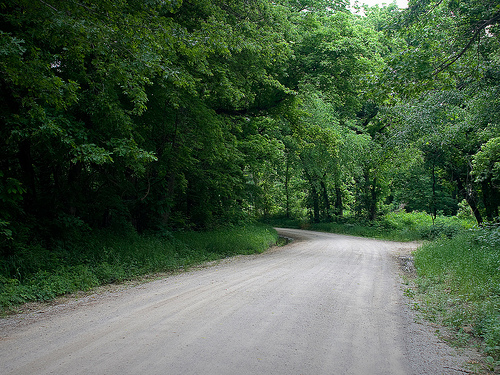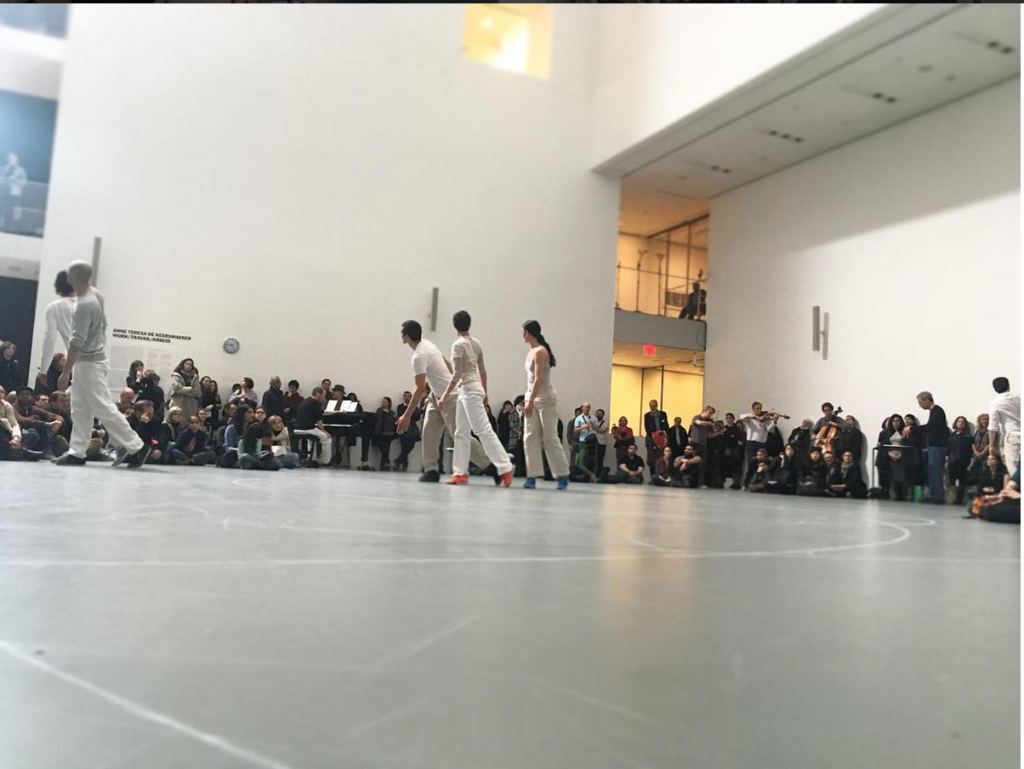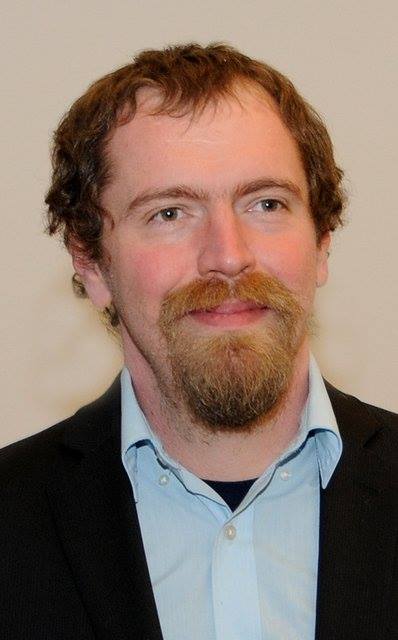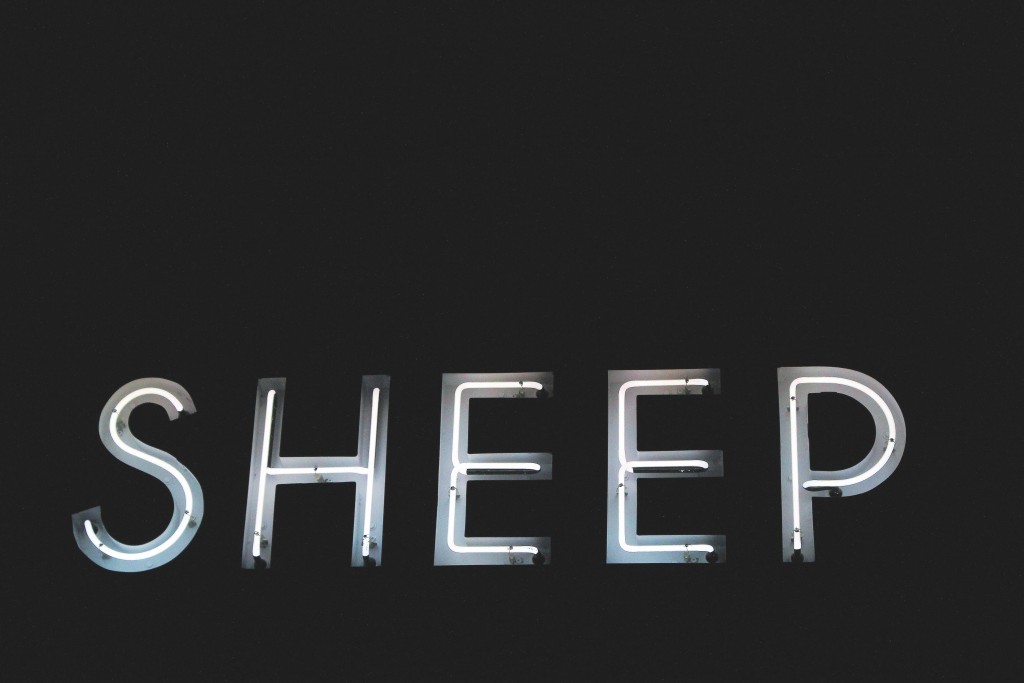Apr 21, 2017 | Blog - Mary Marcus
Henry and I got lost on Easter Sunday trying to get to a beach party in the Northwest Woods: A large track of land owned once upon a time by one person and now, like so much of the land around here, in East Hampton, subdivided into places for the weekend rich to renovate, landscape, and decorate to their heart’s content.

I have a secret yen to participate in the above activities, but I have never so far in my life’s journey given into the temptation.
For years I’ve been consciously working on this issue. I’m optimistic that one day, before I am rolled into the crematoria, I will have a place with chairs and couches, proper window shades, and a magnificent rug and lamps and pictures that all have a certain harmony and forethought and I will be comfortable in that room. It seems far more complex than writing a book, or learning to stand on my hands in the middle of the room as I can stand on my head and on my forearms. The aforementioned takes practice, the other stuff takes a sense of entitlement I’ve never possessed.
Every place I’ve ever lived is bare, except for books, and pictures. Books are one thing, and pictures are easy, even before I married into a family of an artist and his friends, I had lots of pictures. Pictures and books don’t seem to be on my personal index.
Once upon a time, I had a friend who was the opposite of me in that regard and we were great friends for a long time. I thought of her as Henry and I were getting lost in the Northwest on Easter afternoon. I always got lost going to her house too. She had a nice big house of the kind even if I went to two shrinks twice a day for the rest of my life, I could never feel entitled to—not that I didn’t like going there. It was so comfortable. It was so pretty. It was so luxurious, but in a nice interesting way. Taste, style and an ability to spend money with impunity. I have a modicum of taste and style, what I lack is the impunity part. She knew that about me, and used to admonish me.
And I’m guessing that was what happened to our friendship. One of the things anyway.
Henry and I were driving along this incredibly long tree-lined country road, with no real demarcations, everyone gets lost in the Northwest. No place to buy milk or a newspaper, no mailbox, no signposts…
I was recognizing names of streets. Probably the name of the developer’s children. When I was growing up my friend Janie Davis lived on Janie Lane, a street named by her father in honor of her.
Houses come and go. When I was growing up, as we descended down the socioeconomic ladder we went from big house to townhouse, to apartments… practically nobody lived in apartments in my hometown.
Perhaps that’s why I love New York City so much, because everybody lives in apartments. And too, maybe my lack of attachment to things comes from that time.
Your house is where you are supposed to feel safe. A friendship is a sort of house too, when it’s good you feel safe within it. I didn’t like the big house we had to move out of and never felt safe there. And come to think of it, I often felt in great peril in that friendship.
I was turning left, I was turning right, a jolt of misery, as sharp as a kick in the stomach hit me. For my former friend and our last conversation. For the yard sale my mother had right before we moved out of the big house. My four poster bed went that day. Afterwards my beloved Aline, our housekeeper, told me she would have bought the bed had she known Miz Marcus was going to sell it. How come nobody told me my bed was going? Our silver tea service also went. I had to stop the car and heave a little.
Afterwards, I felt much better. Cheerful in fact! Henry just sat there as dogs do, looking straight ahead, ears up. Dogs are enormously comforting and I’m so grateful to have little Henry in my life.
I decided not to go to the party. I’d forgotten my hat anyway, and set forth without any wine or nibbles for the potluck, and so I wended my way home.
And didn’t get lost!
It was my first experience of competence in the damn Northwest.
Good old T.S. was right when he said, “People change and smile but the agony abides. Time the destroyer is time the preserver.”
Good old T.S. Eliot. I’m not reading him so much anymore.
Maybe because I read so much of him at one point, another few lines kept going through my head on my fifteen-minute escape down the long country road:
… Last season’s fruit is eaten
And the fullfed beast shall kick the empty pail.
For last year’s words belong to last year’s language
And next year’s words await another voice.
But, as the passage now presents no hindrance
To the spirit unappeased and peregrine
Between two worlds become much like each other,
So I find words I never thought to speak
In streets I never thought I should revisit
When I left my body on a distant shore.


 by
by 
Apr 3, 2017 | Blog - Mary Marcus
It was raining cats and dogs when I went to MOMA today with my friend Mark, who is in town to cover some musical events. The MOMA of today isn’t the MOMA I cut my teeth on, where I knew where everything was. The new MOMA is beautiful. I knew the first time I entered its doors it was beautiful, but it’s not home anymore, it’s just a beautiful place where I don’t know my way around.
Mark was interested in this thing that was going on, a dance choreographed by someone he admires a lot, with a group of musicians that changed every hour. It was in one of those gorgeous big white rooms of many stories with galleries and window spaces dotting the walls. The room was white, the walls were white, the floor was white. The dancer was wearing white. We leaned against the wall, and watched the dancer and listened to the piano music that was strange, hard to process and alienating—but not alienating enough to be awful. I didn’t exactly get it, but I liked it.

The dancer was moving around the room. Mark told me sotto voce that the choreography owed a big debt to Merce Cunningham, someone Mark had known well. Myself, I thought the choreography owed a big debt to yoga. There was an up-dog, a down-dog, a gorgeous upward facing bow, not to mention several Warrior III’s. But that seemed like a stupid thing to say to my friend. Or to anyone else who wasn’t into yoga.
I thought about the old MOMA where there weren’t all these huge public spaces and event rooms. At the old MOMA once upon a time, I had met my beautiful cousin Judith for lunch and did not know it would be the last time I’d ever see her. We hadn’t met in years. I’d always loved her. And I don’t remember how or why we had finally gotten together.
We were eating lunch in the old cafeteria. And she almost let it rip about her father, my uncle, and I almost let it rip about my father, her uncle. It was after she said, sort of sadly to me, “Your father was the nice one. Everyone loved him.”
I started to tremble, as I used to do, when on the rare occasions I met up with any of my blood relations. And they mentioned how my father was the nice one.
“My father wasn’t nice,” I said. “Not to me, anyway. Was your father nice to you?”
Cousin Judith said, “I never knew a single nice moment with my father. Not one. Not a single one. I spent my childhood trying to protect my mother.”
“Same here,” I replied. We both looked down.
I remember thinking what had happened to me had happened to her. Maybe it was some sort of family pact, a blood oath. All these years I thought I was the only one. But I didn’t ask her about what happened to her in detail. I just kept my head down.
And pretty soon after that we left the cafeteria. And pretty soon after that, I heard my cousin Judith was gravely ill with the exact same thing that had killed her mother, and suddenly she was dead. It is one of my biggest regrets that I didn’t have the guts to take the conversation to the next level. The taboo was just too strong.
Mark suggested we go to something else he was interested in, some thing by a Japanese videographer he admires.
We went into a pitch-black room where images of naked people chasing each other were projected onto the wall. Naked images were humping each other, jumping inside each other; it was very trendy, very arty, and not particularly sexy. Or maybe I was back in my childhood.
We went back to the big white room where more and more people had gathered. Mark and I leaned against the wall, but most of the people in there were sitting down in a circle on the floor. By now there was a flautist, another pianist, a violinist and many dancers.
Mark said he wished he had the time to stay for the whole nine-hour cycle.
Afterwards we stopped by the bookstore/gift shop and I saw a knife rack almost exactly like one my husband had made for us years ago out of two pieces of birch invisibly joined. I took a picture of it and texted it to my husband. In the old MOMA, the one that felt like home, people couldn’t take pictures and send them all the way across the country in the blink of an eye. There were some people who might have known that was possible but I wasn’t one of them.
In many ways it was a simpler world back then. Not so much to remember, not so many passwords and gadgets, not so many things to distract one.
Eliot: distracted from distraction by distraction.
It was raining even harder when we left MOMA and headed to the Pain Quotidian near Carnegie Hall. The wind was blowing like crazy and Mark’s expensive umbrella did that cheap umbrella thing which was to suddenly turn inside out and become useless.
I was ravenous and stuffed myself with bread and butter before my big bowl of lentil soup arrived.
I wished with all my heart my cousin Judith was still alive and we could meet again and this time have the real conversation. I imagined her walking in the door, my introducing her to Mark and the two of them talking about the famous violinist she had a relationship with for many years, who was in the Budapest String Quartet. He was older even than her father, with whom she’d never known a nice moment, like I’d never known one with mine.


 by
by 
Mar 22, 2017 | Blog - Mary Marcus
Very few of my close friends are on Facebook. I participate to post my blog and do the occasional round of keeping up with the two thousand plus imaginary friends I have, that I “made” in order to promote my work. Though I like the pictures of people’s children and dogs, any and all yoga stuff, the occasional plate of gorgeous food, I think we all spend too much time on line. It’s bad for the eyes, it’s bad for the ass, and I think honestly it’s even worse for the spirit.
I say this about FB with a few notable exceptions. One is my friend Andrea, whom I’m seeing in a few minutes. The other is the wonderful fiction writer Steve Yarbrough who I can honestly say is my real friend, whom I wouldn’t have met but for Facebook. I read his posts the same way I read the New York Times: religiously. Steve plays the guitar and will sometimes make a video of himself playing Bluegrass. It’s great fun. Friend him on line, if you like gentle reader, but better than that, read Steve Yarbrough’s books.
The other person whom I’ve been following (far less sedulously) was a dude named Okla Elliot who was young, taught English and religion at some obscure university and wrote a book about Bernie Saunders during the campaign. And always had a lot of lively things to say about poetry, about the books he was reading, about his life (which sounded weird, frankly), monkish with junk food seems to be the only description I can come up with.

Okla was found dead this morning. And now there are tributes to him on line. Apparently, Okla had a mild case of diabetes, one not requiring insulin, but diabetes is a known culprit in heart attacks. Probably that’s what happened to him.
I didn’t feel very much when Princess Diana died. Sure I felt sorry for her children, she was young, she was pretty, she was compelling, I suppose. I was appalled and amazed at the orgy of mourning her dying set off, not just in England but all over the world. I was running at the time, and the woman I used to run with, a biologist, who had a daughter, a husband and two pet rats, went on and on and had to stop to catch her breath from weeping for a solid week after the pretty princess was killed in the back seat of her limo. Another friend actually stayed up all night so she wouldn’t miss the funeral on TV. I didn’t get that then and I don’t get it now. How does a media star burn her way into your psyche?
But I deeply mourn the passing of Okla Elliot, obscure poet, obscure intellectual, earnest fellow and very very nice; you could see that reading his posts.
And I feel the sense of loss that people must have felt when that young and pretty princess died. I feel like the world has lost a prince of another kind.
Okla never had his picture splattered over any tabloid. His sartorial style resembled as far as I can make out, early Boy Scout. Still, I’m willing to bet, he will stay with me forever.
I am profoundly sorry this lovely man died young. And I will miss this virtual stranger. If I knew who his parents were, I’d write them a sympathy card. A real one, in handwriting, on plain thick vellum with a return address and the prettiest stamp I could find in the house.


 by
by 
Mar 3, 2017 | Blog - Mary Marcus
It’s pilot season here in Los Angeles. If you are married to an editor who isn’t working on something else, that often means, he or she will be gone for seven to nine weeks seven days a week 15 hours a day (not counting the commute) and you will feel like there’s a war going on. Or the spouse has sailed off 18th Century style in a boat with fellow sailors, lime juice to prevent scurvy, and perhaps Captain Bly at the helm.

It’s not a pretty sight, once it gets going. My husband who has the stamina of five horses, two oxen and eight goats, loves these death marches. Me, I wouldn’t last half an hour. I visited him once years ago in one of his cutting rooms during pilot season because I hadn’t seen him in a few days. He was happily at the helm of the Avid, arms out like a concert pianist, with a frazzled writer/producer nearby, running the scene forward, backward, sideways. He hadn’t slept in a couple of days and the bags under his eyes looked like suitcases. But he was happy as a clam. (Have you ever wondered how a clam feels happiness? Let me be the first to say, this is the first time I have wondered….)
That’s the thing editors do: they run the scene (any scene, in real life or in screen time) forward, backwards, sideways, and they try different music and they jump cut. This is, for better or worse, their approach to reality.
To see a world in a grain of sand and heaven in a wildflower, is far different than viewing the world through the Avid screen. In the old days editors wore white gloves and actually handled film. But the approach was identical. You run the scene forwards, backwards, sideways. You splice this. You put that there. You sync up a little music and you show the scene to someone and then if they don’t like it, you try it another way.
It’s actually quite a lot like being a writer. But the hours are much, much worse and if you live in LA, there’s usually an awful commute.
I have mixed feelings about pilot season. On the one hand, it’s good for the husband to be working, because he loves working, but on the other hand, it’s really an ordeal. And I wonder how we are going to survive pilot season.
I only know one two-editor household, and when she wanted to have kids, she had to quit. You couldn’t possibly raise a family if both parents are editors. It’s hard enough if one of the parents is an editor. It’s hard when the kids grow up and leave home and there’s only you and editor and the Avid screen left.
It took me many years to get it. I always swallowed the cool aid: “this is just a fluke! It’s insane. I’ve never been on such a freak show.”
Gentle readers: they are all freak shows.
But I hope the footage is good.
I hope the people he is going to be living with– more or less– will be congenial. And I’m grateful that pilot season, like the Jewish holidays, is only once a year.
The great poet James Tate’s father was an actual pilot. Not a show hoping to attract a viewer-ship and syndication. When I heard my husband was doing another pilot, I reached for poetry to console me. And I remembered The Lost Pilot.
From the end of the poem:
My head cocked toward the sky,
I cannot get off the ground,
and, you, passing over again,
fast, perfect, and unwilling
to tell me that you are doing
well, or that it was mistake
that placed you in that world,
and me in this; or that misfortune
placed these worlds in us.


 by
by 
Feb 6, 2017 | Blog - Mary Marcus
We were playing around with the idea of taking a trip without Henry.
Doggy day care is everywhere in the big cities. Every time you turn around in LA, there’s a doggy day care or a Gentleman’s Club, two such places in my neighborhood share the same building with different entrances. Passing by, I always wonder if someone wasn’t paying attention and walked into the Silver Reign rather than the Wag’s Club, could a whole life change within the course of this error? I’m guessing yes!
But Henry because he still has his you-know-what’s isn’t welcome at the Wag’s Club or most doggy day care places. So when I heard about this camp out in the country outside LA, a place described to me as “summer camp for dogs,” I decided to check the place out. It’s so exclusive you need an appointment for the evaluation. And for ten dollars more a day, Henry with his you-know-what’s would be welcome. Provided he passed the entrance exam.

“It sounds like the interview for nursery school,” I told my husband. “Will you go with us?”
“OK, just so we agree we’re not going to leave him there, just check the place out.”
I adored camp the only summer we had enough money to send me there. I was the youngest camper—eight years old—and I got to stay there for two months. I fished, I took nature walks, nobody guilt tripped or terrorized me. I slept in a cool cabin with nine other girls so I wasn’t afraid of the dark. It was an utter contrast to regular life, back in Shreveport, Louisiana.
My husband hated camp.
And so did our son. The former managed to get himself lost on Fire Island, and the later was apprehended as he fled Catalina Island in the middle of the night with all his belongings, trying to get home.
I was hoping Henry would be like me in this regard. How great would it be to send him to the country whilst we went to some interesting city!
The trouble with modern pet-hood, is the same thing that is the trouble with modern parenthood: there are a multitude of experts, theories, and because a lot of people treat their pets as children (I certainly do) there’s a spill over.
On the one hand, we speak about dog issues the way we speak about young childhood issues: we speak of separation anxiety, we speak of discipline issues, we speak of transitional objects, proper diet, we buy them little coats, healthy treats, the list goes on and on.
And on the other hand, we want them to be dogs.
We got in the car with Henry and drove way past the valley. We exited, and we drove up a small mountain. We turned this way and that. And finally forty-five minutes later, there we were at the gates to the pet spa.
We were met by a pretty young girl, and a handsome dark haired man with an accent and a beret, who took Henry off our hands. We were invited to observe him by camera from the waiting room.
My husband and I were staring at the screen at three dogs plus Henry walking around in a circle. Things looked like they were going pretty well. Henry didn’t leap. Henry wasn’t barking his head off. He seemed cool, calm and somewhat collected.
Then Henry disappeared from sight. And we were given a tour where we saw big dogs frolicking in a fenced in area. There were small dogs doing the same.
“Every dog has it’s own private room,” said our tour guide.
The private room turned out to be a cell. The cement floor, I thought was wise, but I didn’t like the jail bars. In back of the cell was a small exit for the dog to do its biz. But on questioning, I learned the dog door wasn’t open at night. The dogs were locked in from five in the evening till seven in the morning.
I imagined Henry in his usual spots at home: in my workroom on the silk comforter I bought in India some years ago. Or on the fake shearling in the corner of the couch where he sits at night. Or on the orthopedic pillow meant to cure my neck that indents in the middle that he took as his own minutes after I brought it in the house. I could not see him in a cell by himself, even if they gave him a pillow.
“Could I bring his pillows and toys?” I asked.
“No! we don’t encourage that.”
We returned to the waiting room, and presently Henry stood in the doorway with his captor, who had attached a small noose around his neck.
“He did ok,” said the captor, and then he demo’d the noose. Henry who had been jumping up and down excited to see us, immediately calmed down. And sat obediently. Nothing like a noose around the neck to make any living creature behave itself.
“I don’t think he’s ready for the overnight yet. If you leave him with me for a day, I’ll see if he can join the pack. He just needs a little training. You should get him a collar like this.”
Once again he pulled the noose tight and Henry sat obediently looking straight ahead. He looked serious, resolute and utterly cowed. I’d never seen him this way before.
We got back in the car the three of us. Henry collapsed in my lap after a head to toe shudder. We drove in silence toward the Pacific Coast Highway.
Presently I said, “I don’t know about you, but I’m depressed.”
“I thought you liked camp!”
“I loved camp. But it didn’t remind me of camp, it reminded me of my childhood.”
My husband nodded his head. “I know what you mean.”


 by
by 
Jan 30, 2017 | Blog - Mary Marcus
There’s a good chance that if you have left your house, talked on the phone or used the computer in the last twenty-four, you’ve been asked to rate your experience about the experience.
Feedback. It’s a hungry world out there with big brother and big biz walking hand in hand—not for the first time–but in a way that because of the internet and the instantaneous nature of the modern experience here in the developed world, is unique and mind bending, and now, totally pervasive. We take it in with our daily bread, our morning coffee, as we read the newspaper, the newsfeed, or feed our pets. Most chillingly of all, is now the reading of books, which once at least pretended to feed our minds, is now a mercantile experience symbolized by stars on Amazon.

Rate this experience! On a scale of one to five, have the previous two paragraphs given you anything to think about? On a scale of one to ten how would rate what you’ve just read?
Scary?
Thought provoking?
Somewhat interesting?
Slightly interesting?
Boring in places, but not in others?
Heard that before? Thought that before?
Overwritten?
Underwritten?
Don’t care?
Non-applicable?
Won’t you please shut up!
At the same time that we are being watched by cameras doing everything from taking cash from a machine, to standing in a crowded elevator, to entering an office building, standing on a street corner, walking past a school yard—never mind the rigmarole we go through at the airports—we are expected to endorse what’s happening to us. Like us on Facebook. Yelp about us. But whatever you do, even though your opinion matters to us, don’t express individuality. Anything but that.
Customer satisfaction is not a new field. Way before the chain store, merchants were competing for the return customer. But never in such an all-consuming way.
Just as killing Jews wasn’t anything new in eastern Europe, in the mid twentieth century, the technology finally married the ideology and the Final Solution was born. It’s the same with marketing in the twenty-first century. We’re plugged in and on twenty-four hours a day. We have reached the point of no return.
Because I am usually late paying the household bills, I have monthly access to a number of electronic voices (all of which sound scarily the same) urging me to stay on the line and rate the experience of talking to a machine.
Do I like it?
Has it been a positive experience?
How come there is no context in which to express how horrified I am by the extent to which the mechanistic world has taken over? I scream at machines. I want to kick the B Jesus out of these robots. Should I be fortunate enough to get a human voice on the phone to complain to, I can be sure it’s someone working in a remote call center half way across the planet earning two cents a day and consequently has no clout—still less can understand English without the promptings of a script.
Electronic sensors, that’s another one. The near complete disappearance of the parking attendant in lieu of the machine wherein you feed your tired, over-worked credit card. What in the world happened to all those nice parking attendants who smiled so kindly if one merely said hello and thank you? What happened to carrying around cash? Just remember if you pay in cash, there won’t be a record of what you spent, and maybe you can hide from Big Brother for a moment.
I was holding my hand under a flashing red light on a paper towel machine recently and I fully expected it to ask me to rate the experience.
Did I get enough paper? No!
Do I miss the hand crank? Yes!
Why am I writing this?
So someone will notice and read one of my books?|
Yes. And yes again. Why else?
That doesn’t mean I’m not tired of being linked in, networked, marketed to and paying by phone, electronic check, or wishing much of the time, I could simply check my own self out of this madness.


 by
by 







